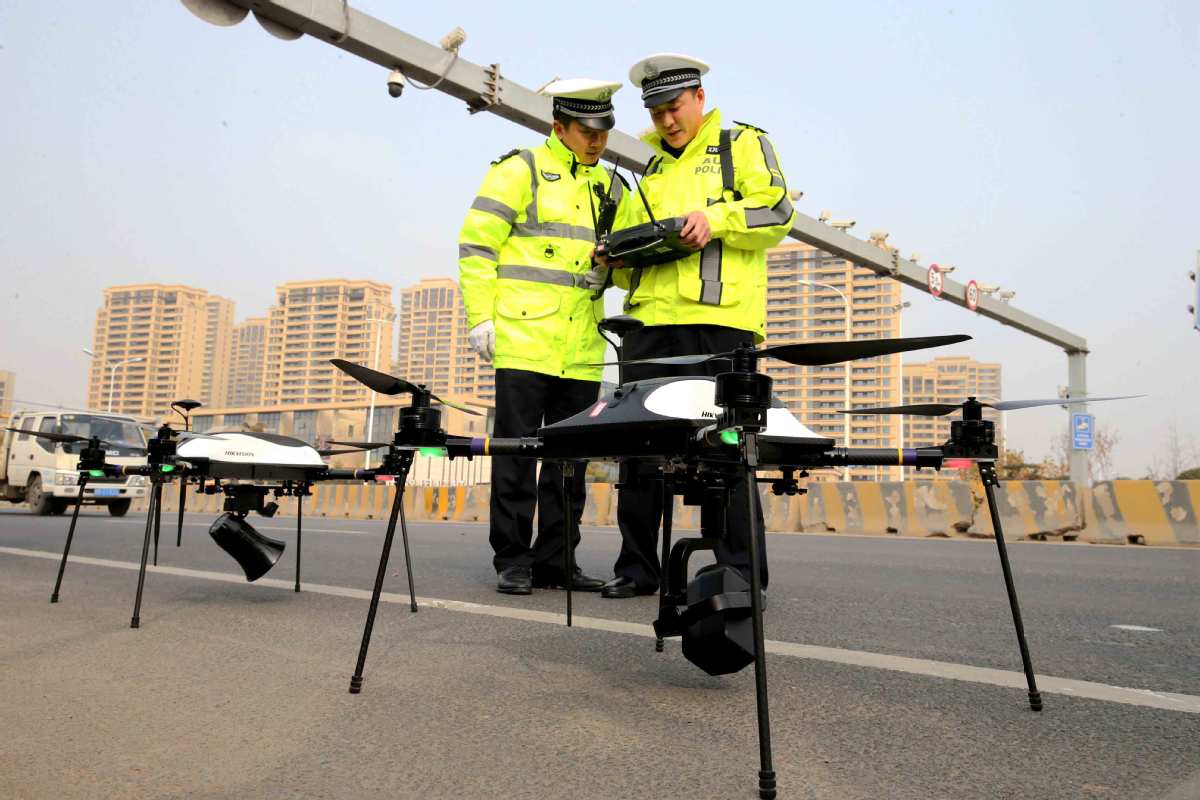Drones aid traffic police, but privacy, safety questioned
By Wang Keju in Beijing and Shi Ruipeng in Nanning | China Daily | Updated: 2019-04-09 09:35

Traffic police in the Guangxi Zhuang autonomous region are using drones to monitor traffic violations and assist traffic flow.
"With the fast-changing urban traffic environment, traffic police are faced with many difficulties, including an insufficient number of officers, low efficiency and inadequate surveillance cameras, which really hinders the management of road traffic," said Han Zhen, a traffic police officer with the public security bureau in Nanning.
Since August, Nanning traffic officers have been using drones around train stations, shopping malls and subway stations, where there tend to be more traffic violations. They say the drones can greatly speed up response times and otherwise enhance efficiency.
"They're able to take videos of drivers who aren't wearing seat belts, are using phones or who are driving through restricted areas," Han said, adding that compared with police patrols, drones can cover larger sections in less time and provide real-time feedback more quickly.
The drones record video and officers draw conclusions based on video analysis, which also allows them to avoid conflicts with drivers and is actually more objective, Han said.
In February alone, the drones recorded more than 1,000 traffic violations.
Many other cities in provinces such as Shaanxi, Shandong and Hainan are also using drones to help police forces with emergencies and daily security affairs.
"I think they are pretty good. Those who run red lights don't even think about how they are jeopardizing other people's safety," said Liu Cheng, a 25-year-old sophomore at Nanning Normal University.
She urged others not to take chances. "It's no use now to memorize where the cameras are, because the drones can fly anywhere," she said.
However, some expressed concerns about the technology.
"In the end it's a machine, which might not be as accurate as a police officer," said Huang Fanxin, a 29-year-old driver in Beijing.
"And what if the drones shoot videos that invade people's privacy or accidentally fall and hit a pedestrian? These are only some of the cases I've read in the headlines."
Zhang Qihuai, a Beijing-based lawyer specializing in civil aviation, said that while government departments use drones for law enforcement, it's reasonable that many citizens worry that their use poses a threat to safety and privacy.
There must also be strict procedures to preserve the videos shot by drones and ensure they are not leaked. And no one but police officers should have the right to see them, Zhang said.
"The Civil Aviation Administration of China has made regulations that forbid the flight of drones in certain zones, including the airport, government office areas and university campuses," Zhang said. "However, with the promotion of drones across the country, the current laws are far from enough."
























